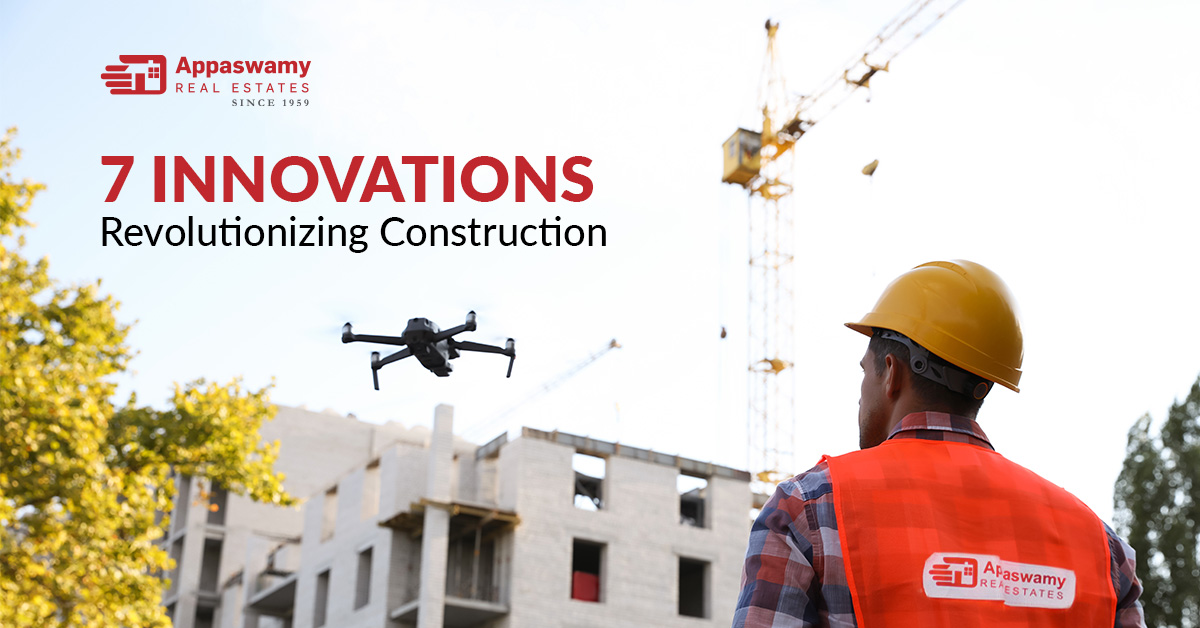Imagine a world where skyscrapers rise from 3D printers, robots seamlessly weld steel beams, and drones deliver materials while mapping the job site in real time. This isn't science fiction; it's the rapidly evolving reality of the construction industry. Driven by a surge of innovation, the way we design, build, and operate structures is undergoing a paradigm shift, one that promises greater efficiency, sustainability, and safety.
But beyond the futuristic headlines, the true impact of these innovations lies in their ability to address long-standing challenges that have plagued the industry. From labour shortages and productivity gaps to environmental concerns and safety hazards, these cutting-edge solutions offer a glimmer of hope for a more robust and responsible construction landscape.
We’re taking a beat from our regular programming to explore 7 groundbreaking innovations that are shaping the future of construction:
- Prefabrication and Modular Construction: Prefabricating entire modules of a building off-site, complete with plumbing, electrical systems, and even finishes significantly reduces construction time and improves quality control. These modules are then transported and assembled on-site, This approach offers cost-effectiveness and faster project completion times, making construction more efficient and predictable. The use of prefabricated modules is ideal for affordable housing projects, delivering quality homes to urban and rural communities alike.
- 3D Printing: 3D printing in construction is revolutionizing the way we create building components. It can print walls, roofs, and even entire houses on-site, reducing waste and minimizing construction time. This technology offers limitless possibilities for customization and on-demand construction, particularly in remote areas or for complex structures. Projects have seen success printing with materials like concrete and mortar.
- Drones: Soaring high above construction sites, capturing aerial footage, inspecting buildings, and delivering materials with pinpoint accuracy, are some of the immediate advantages drones have to offer. They are great to survey vast landscapes, create 3D maps, and even deliver essential supplies to remote locations. This aerial advantage offers valuable data and improves logistical efficiency, making construction more accessible and adaptable.
- Green Building Materials: The use of eco-friendly building materials, such as recycled steel, bamboo, and fly ash bricks, is on the rise in residential construction. Some developers are prioritizing sustainable materials to create healthier living environments and minimize the carbon footprint of their projects.
- Building Information Modeling (BIM): BIM is a collaborative approach to building design and construction. It is a digital model of a building that contains all the information needed for its entire lifecycle, from design to construction and operation. This shared model facilitates communication and collaboration between stakeholders, leading to fewer errors, better coordination, and improved project outcomes.
- High-Tech Construction Equipment for Efficiency and Precision: Advanced construction equipment, such as robotic bricklayers, mini cranes, and laser-guided leveling systems, are streamlining the building process and improving construction quality. Builders like Sobha Limited and Prestige Group are investing in high-tech machinery to accelerate project timelines and deliver superior homes to their customers.
- Augmented Reality (AR) and Virtual Reality (VR) for Design Visualization: AR and VR technologies are revolutionizing the way homebuyers visualize and customize their future homes. Real estate developers like Lodha Group and DLF are leveraging immersive experiences to showcase property designs, floor plans, and interior finishes, enabling buyers to make informed decisions and personalize their living spaces.
These innovations are just the tip of the iceberg. The future of construction is brimming with even more exciting possibilities, from biomaterials that self-repair to self-driving construction vehicles.
But the main focus is on people. These innovations will create new opportunities for skilled workers, requiring training and upskilling to adapt to the evolving landscape. Additionally, ensuring ethical considerations and responsible implementation of these technologies will be crucial.
Ultimately, these innovations promise to revolutionize the way we build for a better future for all. By embracing these advancements and fostering a culture of innovation, we can create a construction industry that is efficient, productive, responsible, sustainable, and safe.
26 Mar 2024
